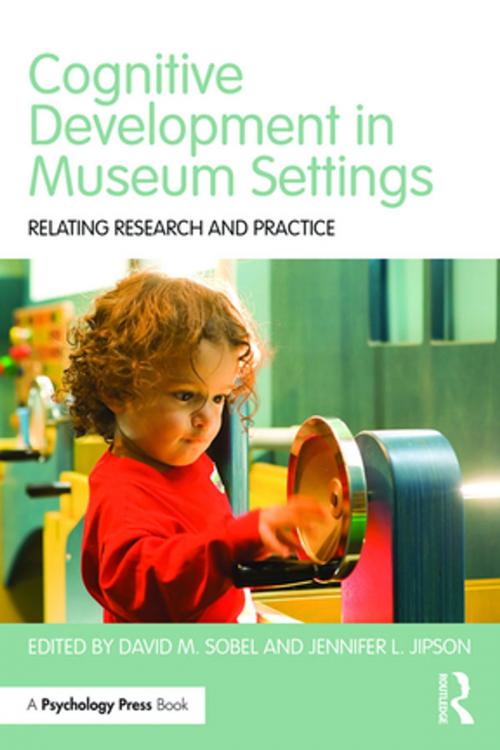Cognitive Development in Museum Settings
Relating Research and Practice
Nonfiction, Health & Well Being, Psychology, Developmental Psychology| Author: | ISBN: | 9781317358459 | |
| Publisher: | Taylor and Francis | Publication: | October 30, 2015 |
| Imprint: | Routledge | Language: | English |
| Author: | |
| ISBN: | 9781317358459 |
| Publisher: | Taylor and Francis |
| Publication: | October 30, 2015 |
| Imprint: | Routledge |
| Language: | English |
Researchers in cognitive development are gaining new insights into the ways in which children learn about the world. At the same time, there has been increased recognition of the important role that visits to informal learning institutions plays in supporting learning. Research and practice pursuits typically unfold independently and often with different goals and methods, making it difficult to make meaningful connections between laboratory research in cognitive development and practices in informal education. Recently, groundbreaking partnerships between researchers and practitioners have resulted in innovative strategies for linking findings in cognitive development together with goals critical to museum practitioners, such as exhibit evaluation and design.
Cognitive Development in Museum Settings offers an account of ways in which researchers in cognitive development partner with museum practitioners. Each chapter describes a partnership between academic researchers and museum practitioners and details their collaboration, the important research that has resulted from their partnership, and the benefits and challenges of maintaining their relationship. This approach illustrates cutting-edge developmental science, but also considers how researcher-practitioner interactions affect research outcomes and provide insight to questions common to practitioners. In addition, each set of researchers and practitioners discusses issues brought up by the partnership by posing questions concerning research-practice partnerships and research evidence, considering whether and how cognitive development research conducted in museum settings aligns with larger disciplinary interests in that field, and examining to what extent museum practitioners benefit from applying research on the development of cognitive processes to their educational practices.
Researchers in cognitive development are gaining new insights into the ways in which children learn about the world. At the same time, there has been increased recognition of the important role that visits to informal learning institutions plays in supporting learning. Research and practice pursuits typically unfold independently and often with different goals and methods, making it difficult to make meaningful connections between laboratory research in cognitive development and practices in informal education. Recently, groundbreaking partnerships between researchers and practitioners have resulted in innovative strategies for linking findings in cognitive development together with goals critical to museum practitioners, such as exhibit evaluation and design.
Cognitive Development in Museum Settings offers an account of ways in which researchers in cognitive development partner with museum practitioners. Each chapter describes a partnership between academic researchers and museum practitioners and details their collaboration, the important research that has resulted from their partnership, and the benefits and challenges of maintaining their relationship. This approach illustrates cutting-edge developmental science, but also considers how researcher-practitioner interactions affect research outcomes and provide insight to questions common to practitioners. In addition, each set of researchers and practitioners discusses issues brought up by the partnership by posing questions concerning research-practice partnerships and research evidence, considering whether and how cognitive development research conducted in museum settings aligns with larger disciplinary interests in that field, and examining to what extent museum practitioners benefit from applying research on the development of cognitive processes to their educational practices.















